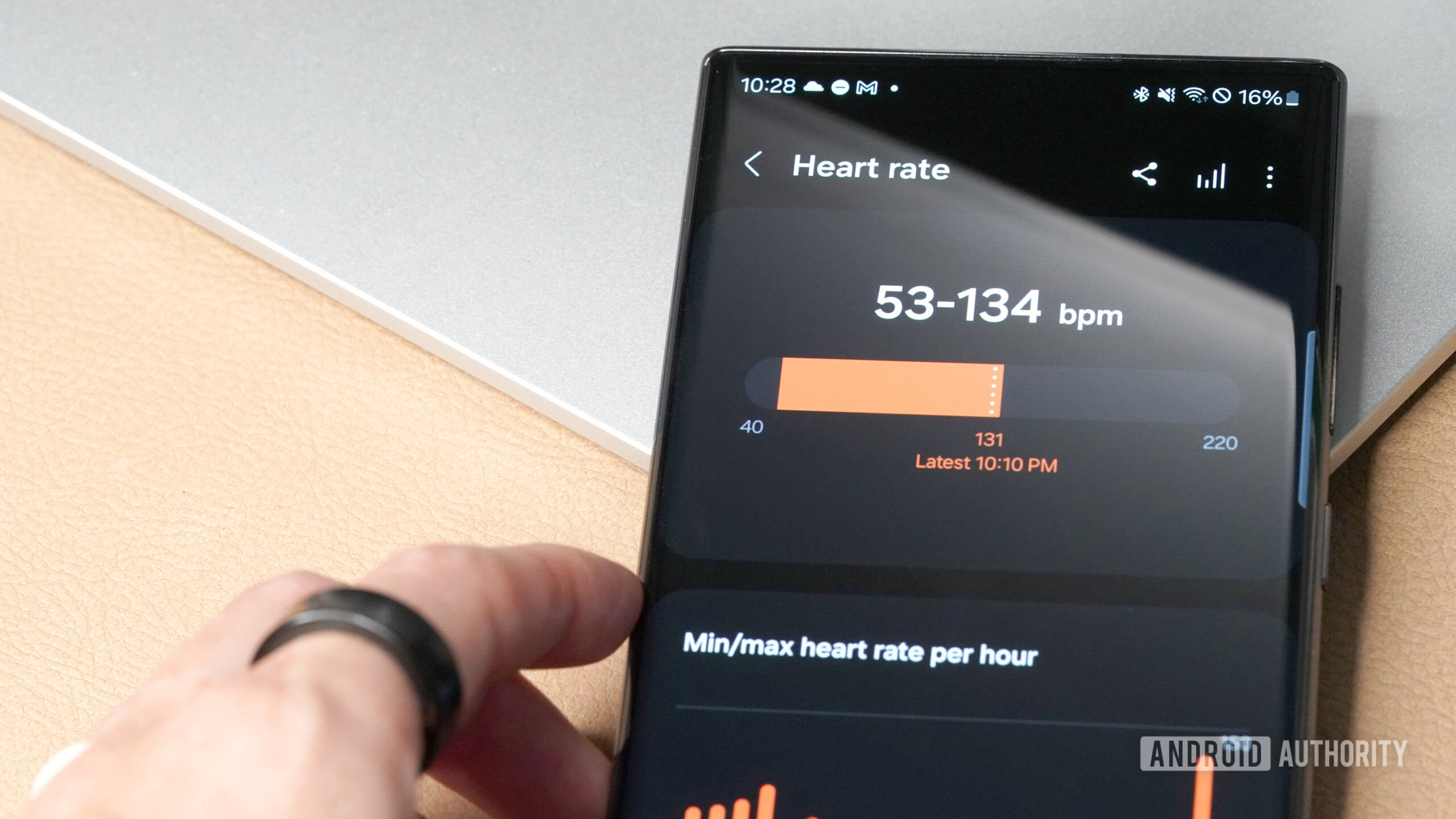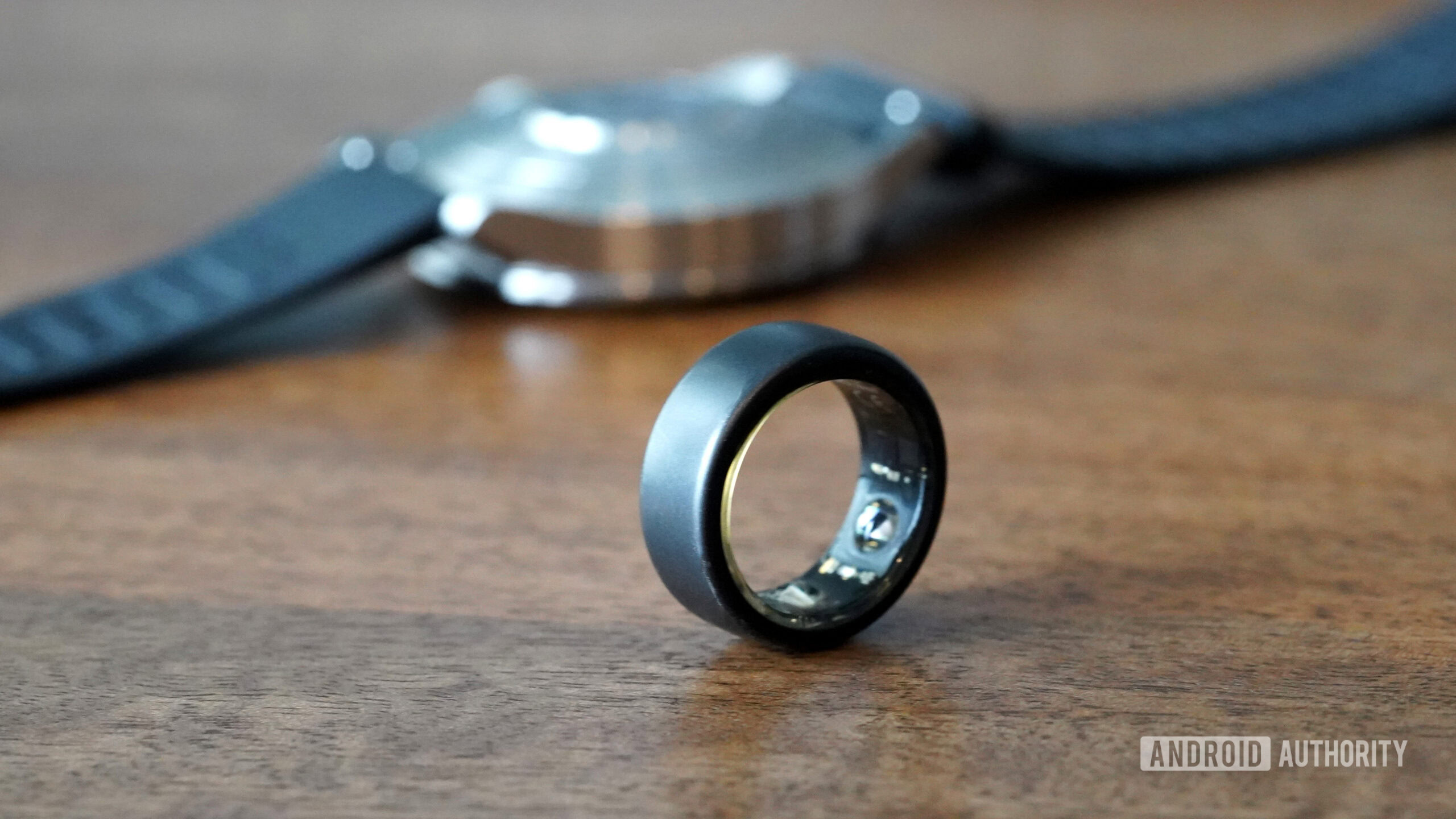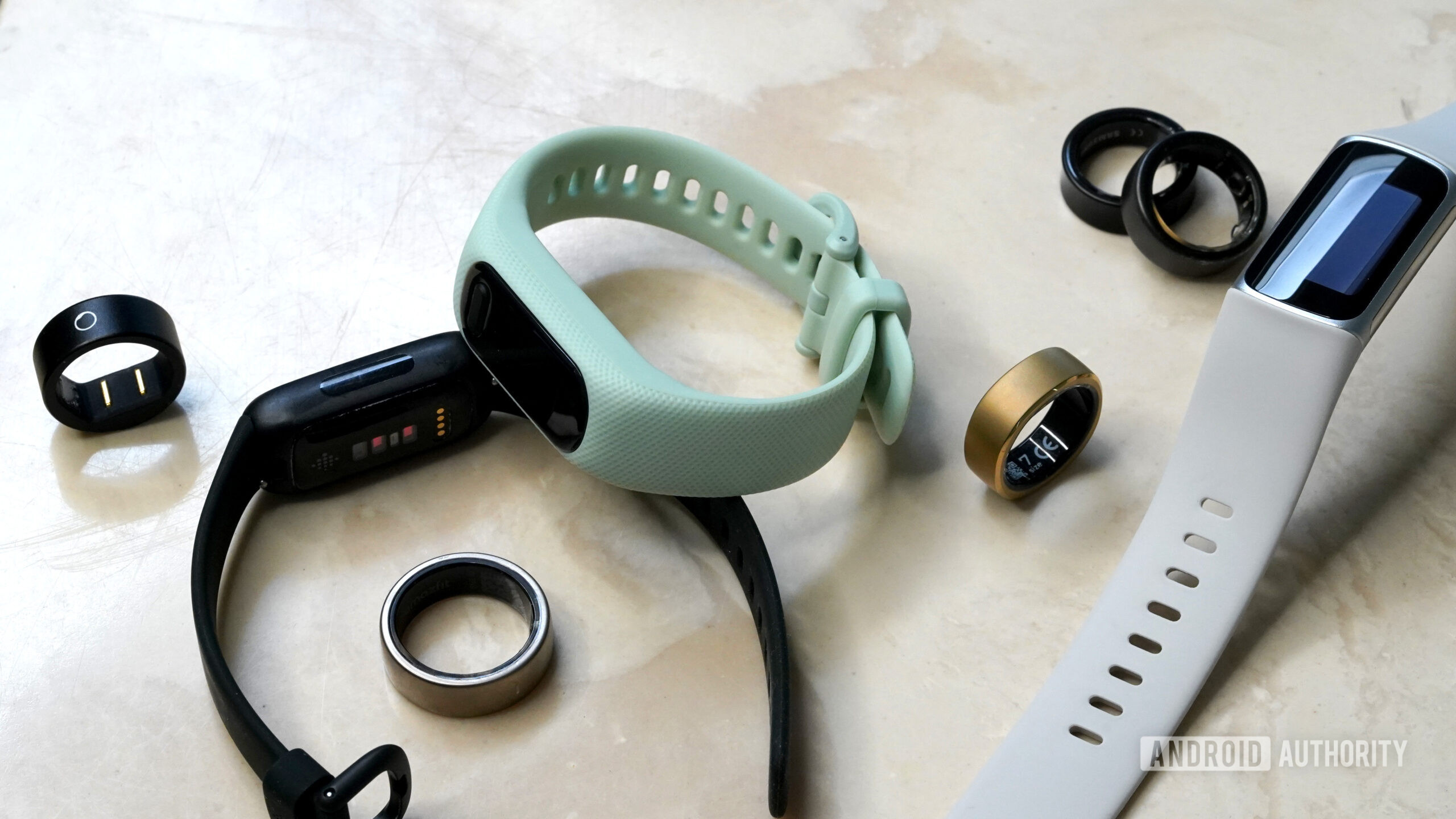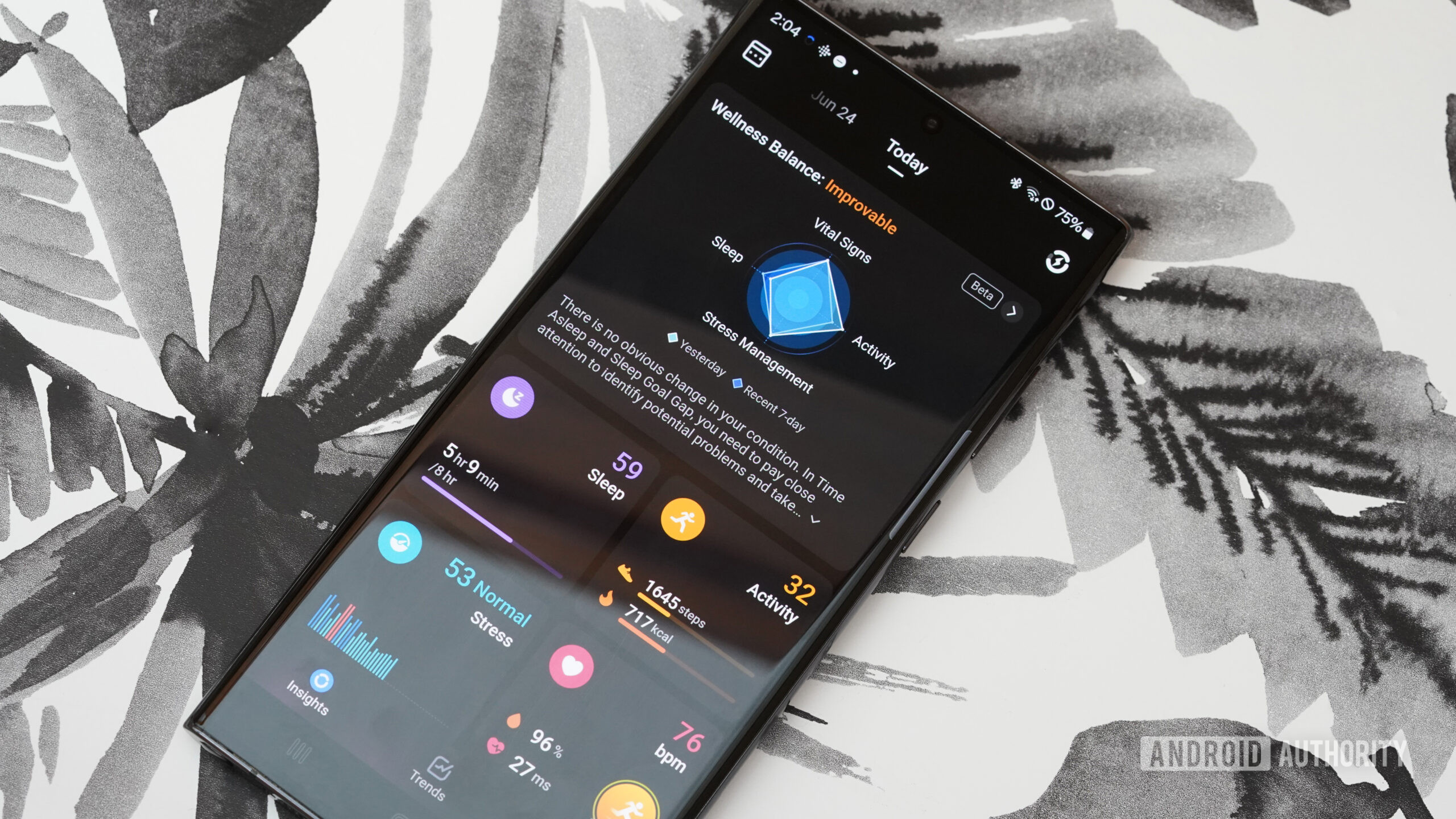Fitness
Smart rings prove that screenless fitness trackers can make a comeback

Kaitlyn Cimino / Android Authority
Despite being a fitness fixture for the past few years, smart rings have not yet come close to challenging the market share of smartwatches and fitness trackers. That’s largely to be expected. They remain novelties, even if their feature kit has moderately matured. We’re now seeing more companies join the smart ring party, but few have seen true success in this segment.
The genre has received a welcome publicity boost with the launch of the Samsung Galaxy Ring. Some consumers are undoubtedly excited by a discreet, screenless, functional device that keeps a finger on their pulse with minimal distraction, but such a device has already been made.

Kaitlyn Cimino / Android Authority
A few years ago, I wrote an opinion piece detailing my desire for a modern, screenless fitness tracker that wraps around the wrist, in the same vein as the Fitbit Flex. This was my first major fitness tracker in this guise, a device I wore religiously until I eventually graduated to the dot-display Charge HR. But these simple yet focused devices lost their allure when they gained gaudy, saturated screens.
Smart rings are not quite the screenless fitness trackers I imagined, but they prove my point.
Now that we’re nearing the end of 2024, it’s amusing how the monkey’s paw has curled. Smart rings are not quite the screenless fitness trackers that I imagined we’d get, but they prove my point: Consumers don’t necessarily need displays on their fitness trackers.
Which fitness tracker form factor do you prefer?
0 votes
A better fit for most people

So why would we need screenless fitness trackers now that smart rings exist? Well, the two devices aren’t entirely equivalent.
I like the idea of a discreet band singularly tasked with monitoring my vitals; smart rings (and the WHOOP 4.0, but its subscription model puts it out of reach for most people) are the only current option. However, they’re limited by concept, physical design, and value. I fully understand that smart ring buyers pay for discretion and minimalism, but I’d rather not be hamstrung by space constraints, especially if that means eking out a little more battery life or gaining a few more sensors.
Smart rings offer limited space for sensors and often command a larger price than a simple, but more powerful fitness tracking band.
There’s not much you can do within the confines of a rigid ring. The fact that current devices are so rich in features is a feat in itself. However, compare smart rings to a modern fitness tracker like the Fitbit Charge 6, and you’ll find a deep specs disparity. The latter has so much more space and generous internals, making packaging more sensors easier at a lower price. You’ll also need to pick the exact size to track your metrics and dare not experience any body changes lest the ring no longer fit.
Unlike their affordable screenless fitness tracker counterparts, you’ll also need to invest a smartwatch-equivalent amount of cash for a smart ring. Samsung asks $399 for its ring, while the Oura Ring 3 costs $299, excluding its monthly subscription fee. To match the rather limited extent of their fitness tracking powers, smart rings offer limited value.

Kaitlyn Cimino / Android Authority
Screenless fitness trackers can overcome these limitations thanks to their flexibility, larger footprint, and affordability. Band-like fitness trackers are more malleable, adjusting to any wrist without so much as a stretch or a minor strap adjustment. There’s no need for multiple-size options, just a few different holes in the band, while there’s plenty of room for a larger battery and other sensors.
They both ditch the display, but as I said earlier, the booming popularity of smart rings proves that a screen is no longer a required fitness tracker feature. Yes, it’s a nice add-on, but it ultimately leads to increased battery drain, wastes valuable packaging space, and requires more software investment from the manufacturer.
Smart rings have already solved this issue using their companion: the smartphone. Fitness tracker apps have largely reached maturity and offer a variety of wellness and fitness monitoring features. They allow for a fuller presentation of the gathered data and offer deeper insight than a slim screen can accommodate. Smart ring owners prove that managing devices using a smartphone isn’t a game breaker; it shouldn’t be for fitness trackers, either.
People looking for a screenless fitness tracker have very few options, and that’s a crying shame.
Considering this detail, it wouldn’t be a massive step for users to consider and warm up to the idea of a screenless fitness tracker. In my last opinion piece, a poll asking readers whether they’d want such a device saw 98% of around 900 respondents fervently nodding. Screenless fitness trackers are in a prime position to fill this need in the market.
There’s never been a better time

Kaitlyn Cimino / Android Authority
With smart rings gaining popularity, now’s the perfect time for companies to introduce a cheaper alternative for a broader contingent. Not everyone can afford to spend $399 on a smart ring, but many more can spare a few bucks less for a screenless fitness tracker.
This is the perfect opportunity for those not yet invested in the smart ring circus, like Google. Fitbit was once the king of screenless fitness trackers, staking its claim with the Flex line. Considering Google’s plans to diminish Fitbit’s smartwatch program, reinvigorating its fitness tracker series with a new Flex model would offer the perfect understudies to the Pixel Watch and Charge lines and a much cheaper alternative to smart rings.
I do think smart rings and screenless fitness trackers could exist in the same world, and such a world would better serve consumers and companies alike.










